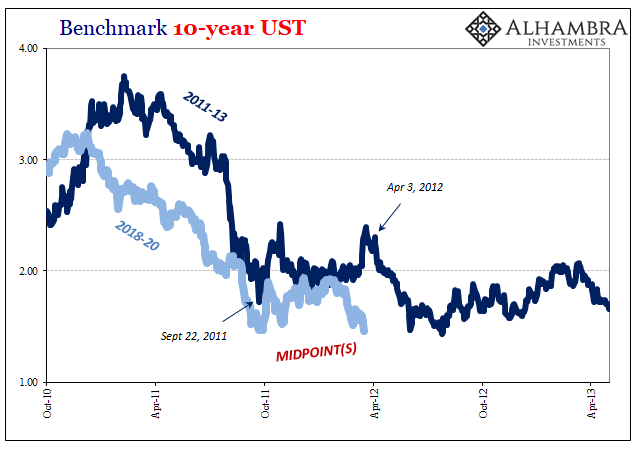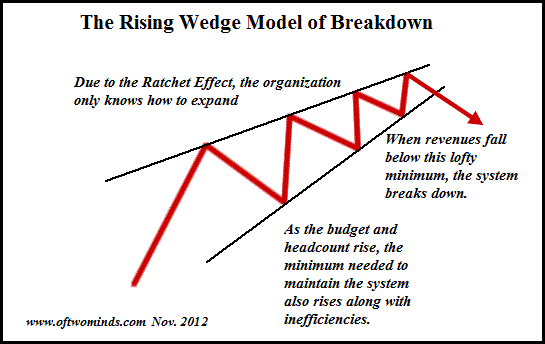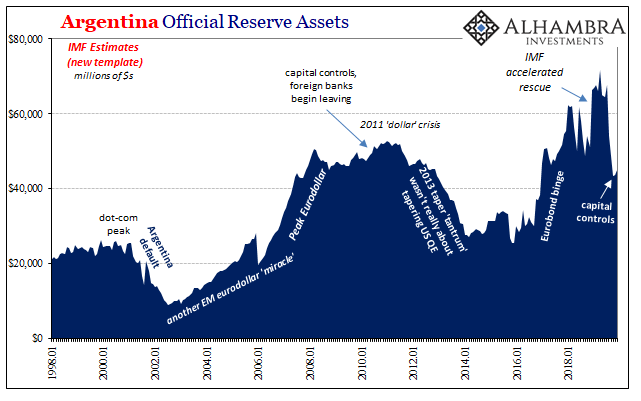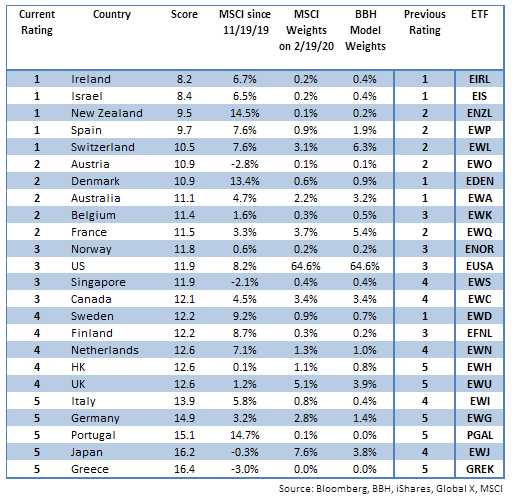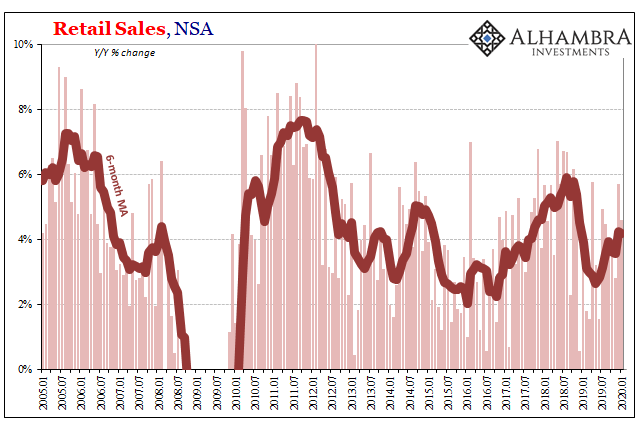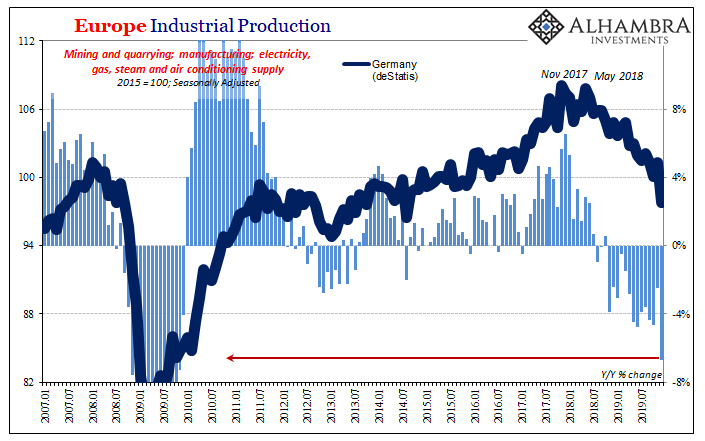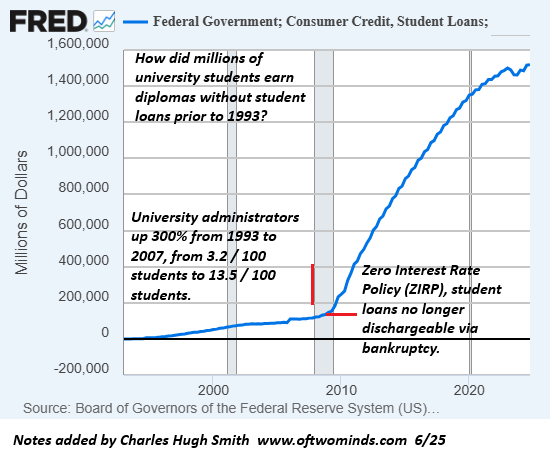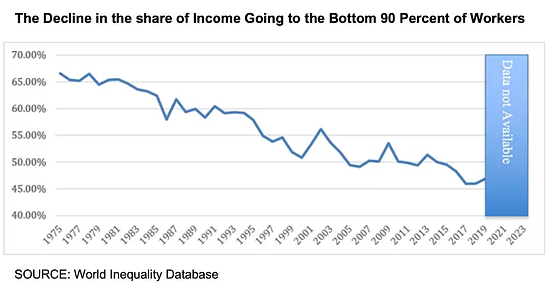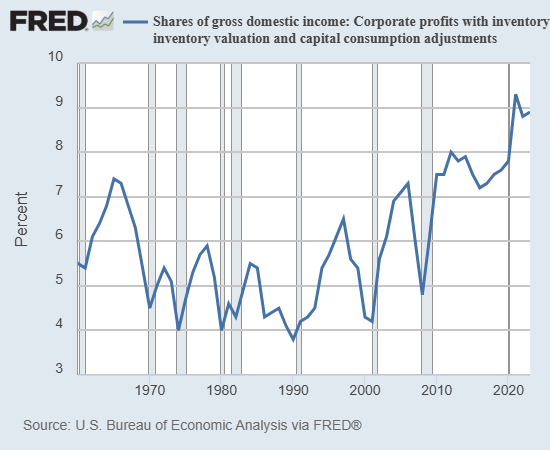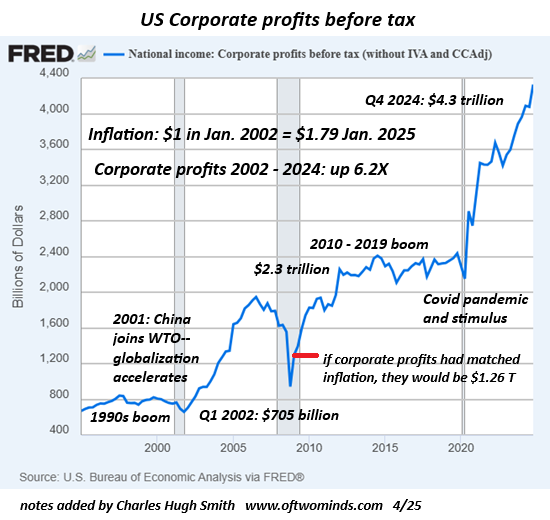Category Archive: 5) Global Macro

Was It A Midpoint And Did We Already Pass Through It?
We certainly don’t have a crystal ball at the ready, and we can’t predict the future. The best we might hope is to entertain reasonable probabilities for it oftentimes derived from how we see the past. Which is just what statistics and econometrics attempt. Except, wherein they go wrong we don’t have to make their mistakes.
Read More »
Read More »
When Will We Admit Covid-19 Is Unstoppable and Global Depression Is Inevitable?
Given the exquisite precariousness of the global financial system and economy, hopes for a brief and mild downturn are wildly unrealistic. If we asked a panel of epidemiologists to imagine a virus optimized for rapid spread globally and high lethality, they'd likely include these characteristics: 1. Highly contagious, with an R0 of 3 or higher.
Read More »
Read More »
EM Preview for the Week Ahead
The still-growing impact of the coronavirus should keep EM and risk sentiment under pressure this week. The weekend G20 meeting in Saudi Arabia acknowledged the risks to the global economy and said participants agreed on a “menu of policy options.” However, the G20 offered little specific in terms of a coordinated policy response.
Read More »
Read More »
Time Again For Triple Digit Dollar
Being a member of the institutional “elite” means never having to say you’re sorry; or even admit that you have no idea what you are doing. For Christine Lagarde, Mario Draghi’s retirement from the European Central Bank could not have come at a more opportune moment. Fresh off the Argentina debacle, she failed herself upward to an even better gig.
Read More »
Read More »
Covid-19: Global Retrenchment Will Obliterate Sales, Profits and Yes, Big Tech
If you think global demand will rebound as global debt and confidence implode, you better not be making consequential decisions based on Euphorestra-addled magical thinking. Even before the Covid-19 pandemic, the global economy was slowing for two reasons: 1) everybody who can afford it already has it and 2) overcapacity. One word captures the end-of-the-cycle stagnation: saturation.
Read More »
Read More »
DM Equity Allocation Model For Q1 2020
Developed equity markets remain near the highs despite mounting concerns about the impact of the coronavirus. MSCI World made a new all-time high last week near 2435 and is up 2.5% YTD. Our 1-rated grouping (outperformers) for Q1 2020 consists of Ireland, Israel, New Zealand, Spain, and Switzerland.
Read More »
Read More »
Dollar Firm as Risk-Off Sentiment Picks Up Again
Negative news on the coronavirus has kept risk appetite subdued across the board; the dollar rally continues. During the North American session, we will get some more clues to the state of the US economy; FOMC minutes were largely as expected. UK January retail sales came in firm; ECB releases the account of its January 23 meeting.
Read More »
Read More »
Afghanistan: why the Taliban can’t be defeated | The Economist
After almost 20 years of war with America, the Taliban control ever more territory in Afghanistan. Why has America failed to defeat them? Read more here: https://econ.st/2uS0lOX Click here to subscribe to The Economist on YouTube: https://econ.st/2xvTKdy Further reading: “Mapping Taliban control in Afghanistan“ Long War Journal https://econ.trib.al/7T1u2aP Hub of Afghanistan coverage by The Economist: …
Read More »
Read More »
The World Is Awash in Oil, False Assurances, Magical Thinking and Complacency as Global Demand Careens Toward a Cliff
This collapse of price will manifest in all sorts of markets that are based on debt-funded purchases of desires rather than a warily prudent priority on needs. Since markets are supposed to discover the price of excesses and scarcities, it's a mystery why everything that is in oversupply is still grossly overpriced as global demand slides off a cliff: oil, semiconductors, Uber rides, AirBNB listings and many other risk-on / global growth stories...
Read More »
Read More »
European Data: Much More In Store For Number Four
It’s just Germany. It’s just industry. The excuses pile up as long as the downturn. Over across the Atlantic the situation has only now become truly serious. The European part of this globally synchronized downturn is already two years long and just recently is it becoming too much for the catcalls to ignore. Central bankers are trying their best to, obviously, but the numbers just aren’t stacking up their way.
Read More »
Read More »
US Sales and Production Remain Virus-Free, But Still Aren’t Headwind-Free
The lull in US consumer spending on goods has reached a fifth month. The annual comparisons aren’t good, yet they somewhat mask the more recent problems appearing in the figures. According to the Census Bureau, total retail sales in January rose 4.58% year-over-year (unadjusted). Not a good number, but better, seemingly, than early on in 2019 when the series was putting out 3s and 2s.
Read More »
Read More »
Drivers for the Week Ahead
We get the first February data from the US manufacturing sector this week; the US economy remains strong; FOMC minutes will be released Wednesday. Canada reports some key data this week. Preliminary eurozone February PMI readings will be reported Friday; UK has a busy data week.
Read More »
Read More »
The Fed Has Created a Monster Bubble It Can No Longer Control
The Fed must now accept responsibility for what happens in the end-game of the Moral-Hazard Monster Bubble it created. Contrary to popular opinion, the Federal Reserve didn't set out to create a Monster Bubble that has escaped its control.
Read More »
Read More »
You Shouldn’t Miss The Cupom
I actually wanted to focus on this yesterday but confirmation wasn’t forthcoming until today. So, it ended up being a broader note on the dollar which only included some mention of Brazil in passing. Still a worthwhile couple of minutes.
Read More »
Read More »
Virus Concerns Resurface
Markets are reacting badly to upward revisions to coronavirus cases in China. The euro fell to the weakest level since mid-2017 against the dollar. UK housing data adds to relatively upbeat figures since the December elections. Malaysia’s government is joining in the counter-cyclical fiscal effort.
Read More »
Read More »
As the Data Comes In, 2019 Really Did End Badly
The coronavirus began during December, but in its early stages no one knew a thing about it. It wasn’t until January 1 that health authorities in China closed the Huanan Seafood Wholesale Market after initially determining some wild animals sold there might have been the source of a pneumonia-like outbreak. On January 5, the Wuhan Municipal Health Commission issued a statement saying it wasn’t SARS or MERS, and that the spreading disease would be...
Read More »
Read More »
How to do the most good possible | The Economist
Doing good is increasingly about more than giving away money. Living kidney donations are rising and a new movement is pushing altruistically minded people to choose careers in fields, such as AI, that will shape the world’s future. Click here to subscribe to The Economist on YouTube: https://econ.st/2xvTKdy For more from Economist Films visit: http://films.economist.com/ …
Read More »
Read More »
China’s Fatal Dilemma
Ending the limited quarantine and falsely proclaiming China safe for visitors and business travelers will only re-introduce the virus to workplaces and infect foreigners. China faces an inescapably fatal dilemma: to save its economy from collapse, China's leadership must end the quarantines soon and declare China "safe for travel and open for business" to the rest of the world.
Read More »
Read More »
Two Years And Now It’s Getting Serious
We knew German Industrial Production for December 2019 was going to be ugly given what deStatis had reported for factory orders yesterday. In all likelihood, Germany’s industrial economy ended last year sinking and maybe too quickly. What was actually reported, however, exceeded every pessimistic guess and expectation – by a lot.
Read More »
Read More »
Controlling the Narrative Is Not the Same as Controlling the Virus
Are these claims even remotely plausible for a highly contagious virus that spreads easily between humans while carriers show no symptoms? It's clear that the narrative about the coronavirus is being carefully managed globally to minimize the impact on global sentiment and markets.
Read More »
Read More »









